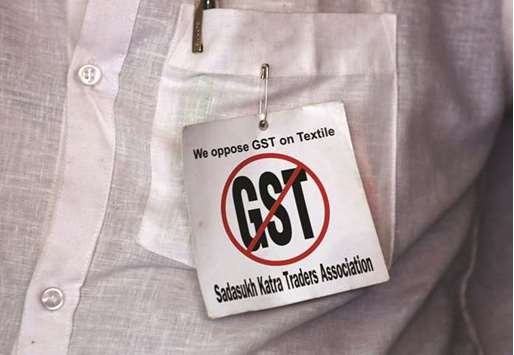India could be forced to cut spending on key infrastructure such as railways and highways as lower-than-expected tax collections and sluggish growth have upset the government’s budget calculations, two finance ministry officials said.
Tax receipts were about $7.8bn in July - a little over half the monthly target - mostly because millions of firms failed to comply with the new Goods and Services Tax (GST) system that harmonises all state and federal sales taxes but is still a work in progress.
The big worry is that economic growth, which slipped to a three-year low in the last quarter, could take a further hit if the public spending that largely underpinned expansion were to be slashed.
“There is a concern over lower tax collections,” a senior finance ministry official said.
The revenue shortfall could be at least Rs800bn ($12.5bn) if the current trend continues until the end of the year, a second official said, forcing a re-think in government spending.
He said receipts from individual and corporate income tax may slightly overshoot the target of Rs9.8tn ($152.8bn) for the whole year, partly due to a crackdown on tax evaders.
And in coming months, GST collections may pick up.
Both officials spoke on condition of anonymity.
Without spending cuts, the second official said, the fiscal deficit could slip to 3.5% of GDP, from the target of 3.2% that Prime Minister Narendra Modi’s government has set for 2017/18.
The main problem has been the introduction of the GST, billed as India’s biggest tax reform in 70 years.
Ambiguous rules, an onerous return filing system and glitches with its IT back-end have made doing business far more complicated for many companies.
Frequent changes in tax rates after the GST’s launch have heightened business uncertainty, resulting in many firms failing to register for the new tax.
Punjab Finance Minister Manpreet Singh Badal told Reuters the new tax was launched in a “hurry resulting in a lot of chaos and pandemonium”.
Punjab, for example, had suffered a revenue shortfall of about Rs8bn in the first month of the July-June fiscal year, he said as the textile, engineering goods and other small industries were hit.

A cloth merchant wears a message pinned to his shirt during a protest against implementation of Goods and Services Tax (GST) on textiles in Kolkata.
